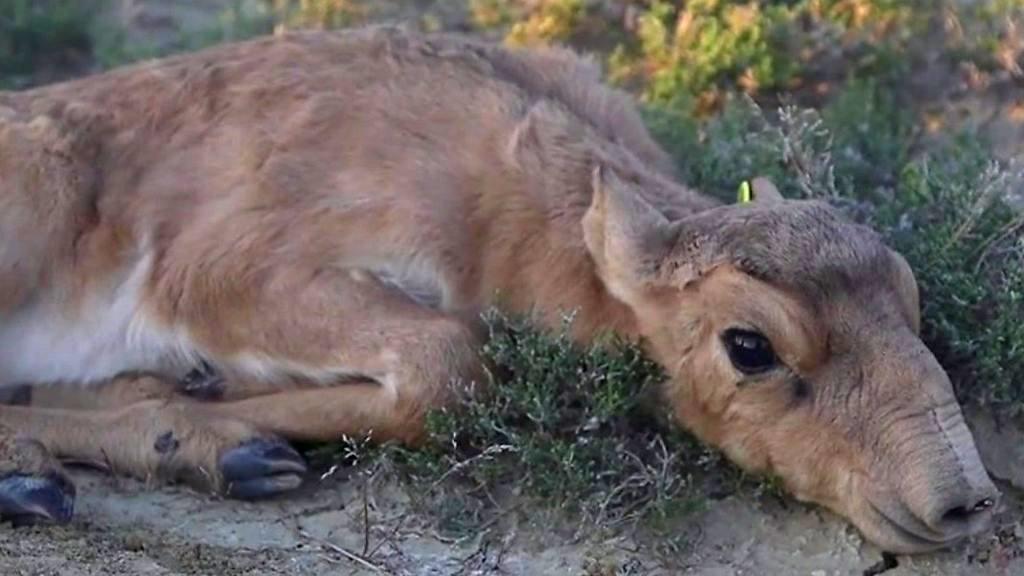Saiga ranger's death sparks Kazakh call for justice
- Published
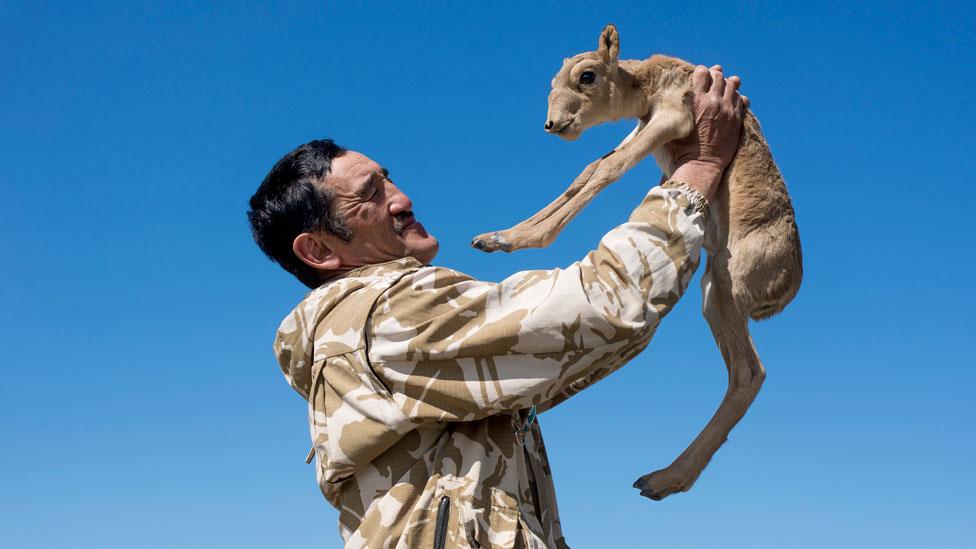
Yerlan Nurgaliev holding a baby saiga
On 13 January two Kazakh rangers were on their usual patrol when they saw something strange - fresh car tracks.
In the remote uninhabited steppe, this could mean only one thing - poachers. Yerlan Nurgaliev and Pyotr Nitsyk quickly gave chase, firing warning shots to stop the cars speeding away.
When the cars stopped, armed men got out. The rangers were badly beaten up, trying to arrest the criminals.
Mr Nurgaliev died in hospital two days later.
This is the first time in the history of Okhotzooprom, the agency that protects Kazakhstan's wildlife, that poachers have killed a state ranger.
Mr Nurgaliev's death has caused a huge outcry with many people urging authorities not to let the criminals get away with this murder.
The prosecutor-general is personally overseeing the investigation of this case.
But this incident has also exposed how massive poaching has become.
The poachers who escaped and left the injured rangers in freezing cold were hunting saiga - Ice-Age antelopes that existed back in the days of woolly mammoths.
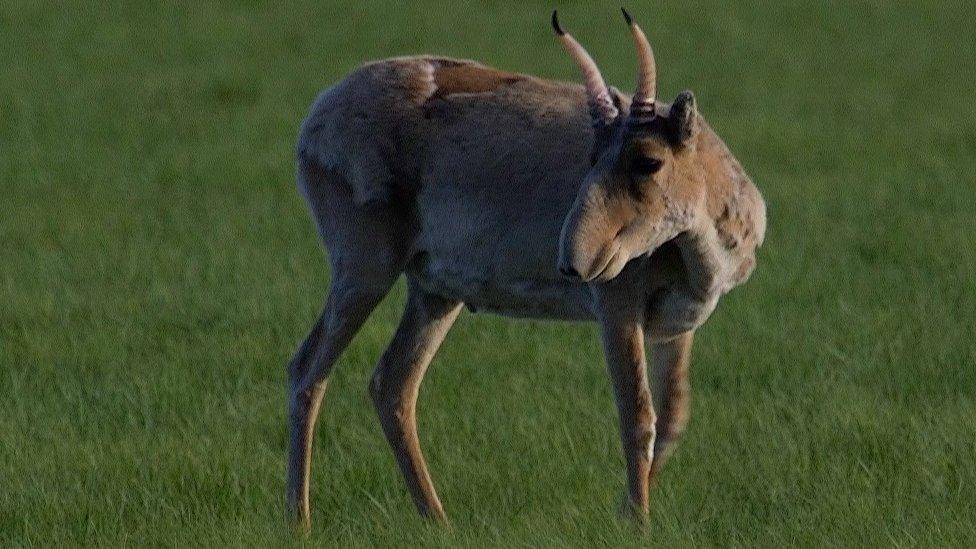
A conservation programme is bearing fruit - the number of saiga is on the rise
Kazakhstan is home to the largest population of saiga in the world.
The International Union for Conservation of Nature (IUCN) included these animals in its red list of critically endangered species.
It is a criminal offense to hunt saiga antelopes in Kazakhstan.
Poaching was one of the main reasons why their population dropped from more than one million in the early 1990s to just about 20,000 a decade later.
Today, thanks to conservation projects and anti-poaching measures, the saiga population in Kazakhstan has increased to about 200,000.
Saiga antelopes: the Ice Age survivors now in peril
But illegal hunting remains one of the major threats to these animals.
Poachers are ready to take any risk as the reward is very lucrative. Just 1kg (2.2lb) of saiga horn - used in Chinese traditional medicine - may fetch several thousand dollars.
Turning into a symbol
I met Mr Nurgaliev and Mr Nitsyk last May.
Like on the day of the fatal incident, they were on a shift protecting the wildlife. We talked a lot about their work, about poachers who are often better equipped than rangers and can successfully escape when chased.
Mr Nitsyk showed his Makarov handgun when explaining about chasing poachers.
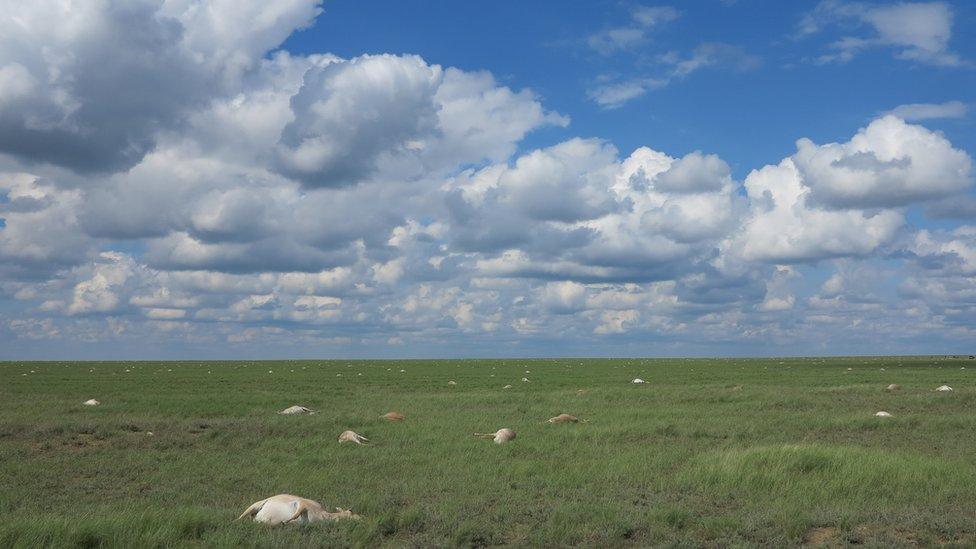
Saigas died in large numbers across the Betpak-Dala region of Kazakhstan in 2015, with most of the global population wiped out
"I've only used it for warning shots, never against humans," he said.
On that tragic day, they used their weapons again only for warning.
They had every right to shoot criminals since their lives were under threat, their colleagues say.
But they probably didn't realise how serious the threat was until it was too late, they add.
For many, the death of Mr Nurgaliev has become a symbol of injustice in Kazakh society.
"He didn't build a palace or buy an expensive car. He could steal like many but chose a different path. And he died," wrote one social media user.
My father is also a ranger, wrote another one. "He was injured during a similar fight with poachers and nearly died. What punishment did they get? Nothing. They're free."
Some rangers complained in private that they risked their lives to catch poachers, but often the only punishment the criminals got was just a fine.
Rangers also whispered among each other about cases when someone "high up" would arrive to hunt and how they had to pretend they didn't see them.
This time, Kazakh authorities say that they will find the perpetrators and punish them. Failure to do so would only encourage poachers to continue hunting.
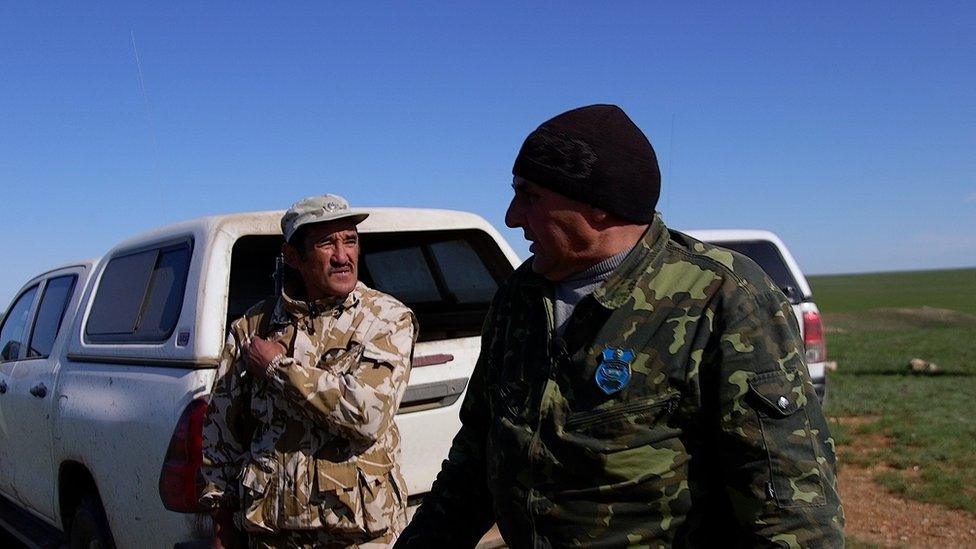
Mr Nurgaliev and Mr Nitsyk appeared in a BBC video in May 2018
Yerlan Nurgaliev was going to turn 53 at the end of this month. "He was an honest man who never betrayed his principles," said his friend and colleague Zhanat Tansykbaev.
On social media there is a growing demand to give him a state award posthumously. Some officials have already supported the call.
And even this would only add to the feeling of injustice, some say.
In a country where the prestige of your work is weighed against the power you hold, a ranger's job ranks quite low among government agencies.
The government, as well as the people, rarely notice protectors of wildlife until they get killed.
- Published17 January 2018
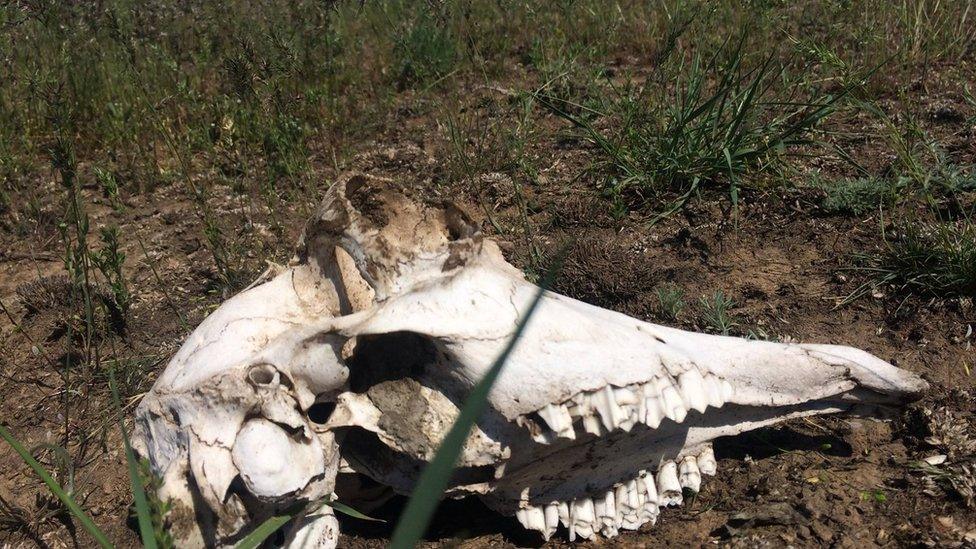
- Published14 June 2018
